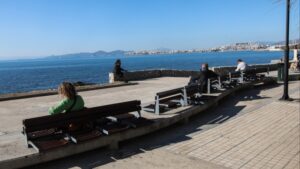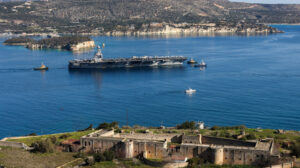The list of countries suffering from Turkish aggression is long. Turkey occupies one-third of Cyprus. It has used its F-16s and Special Forces against Armenians. Iraqi officials say Turkey has now established 68 outposts on its territory, ranging in size from small platoon-level posts to a full-size base. The Turkish Air Force bombs Iraq nightly. Turkey ethnically cleanses entire districts in northern Syria. Its maritime land grabs would make the creators of China’s Nine-Dash Line blush.
Against this backdrop, President Recep Tayyip Erdogan’s increasing threats against Greece should alarm. Indeed, the tension between the two NATO members is nothing new and predates Turkey’s mercurial ruler for decades. Four factors, however, make the current crisis different.
First, Erdogan is openly revanchist. He seeks to revise—always in Turkey’s favor—the century-old Lausanne Treaty that established Turkey’s borders with Greece and Bulgaria. He falsely claims Greece violates demilitarization agreements, and Turkish politicians up to and including Erdogan coalition partner and nationalist party leader Devlet Bahceli and Defense Minister Hulusi Akar further argue that they should possess all islands east of a median line in the Aegean Sea. Turkey does not limit such provocations to maps. Turkish jets regularly violate the airspace of Greek islands like Kastellorizo. State Department statements infused with bothsiderism make matters worse.
What literature genre do Greeks love? What do other Europeans read? (infographic)
Simply put, Turkey is violating Greek airspace and occupying Cypriot territory, not the other way around. Secretary of State Anthony Blinken should make this clear. Moral equivalence and lies are no basis for peace and justice.
Read more: 19fortyfive
Ask me anything
Explore related questions





